Capacity Building
Invitation
HeDWIC welcomes students from degree granting institutions to conduct all or part of their research at CIMMYT as part of their PhD program requirements. While CIMMYT is not a degree granting institution —and does not have funding to cover tuition and stipends — it places students at prestigious universities and covers most research costs where conducted at CIMMYT. Many HeDWIC scientists are eager to collaborate on grant proposals with faculty at degree-granting institutions to help secure funding for student research.
Please contact us if you are interested in exploring opportunities.
Current students
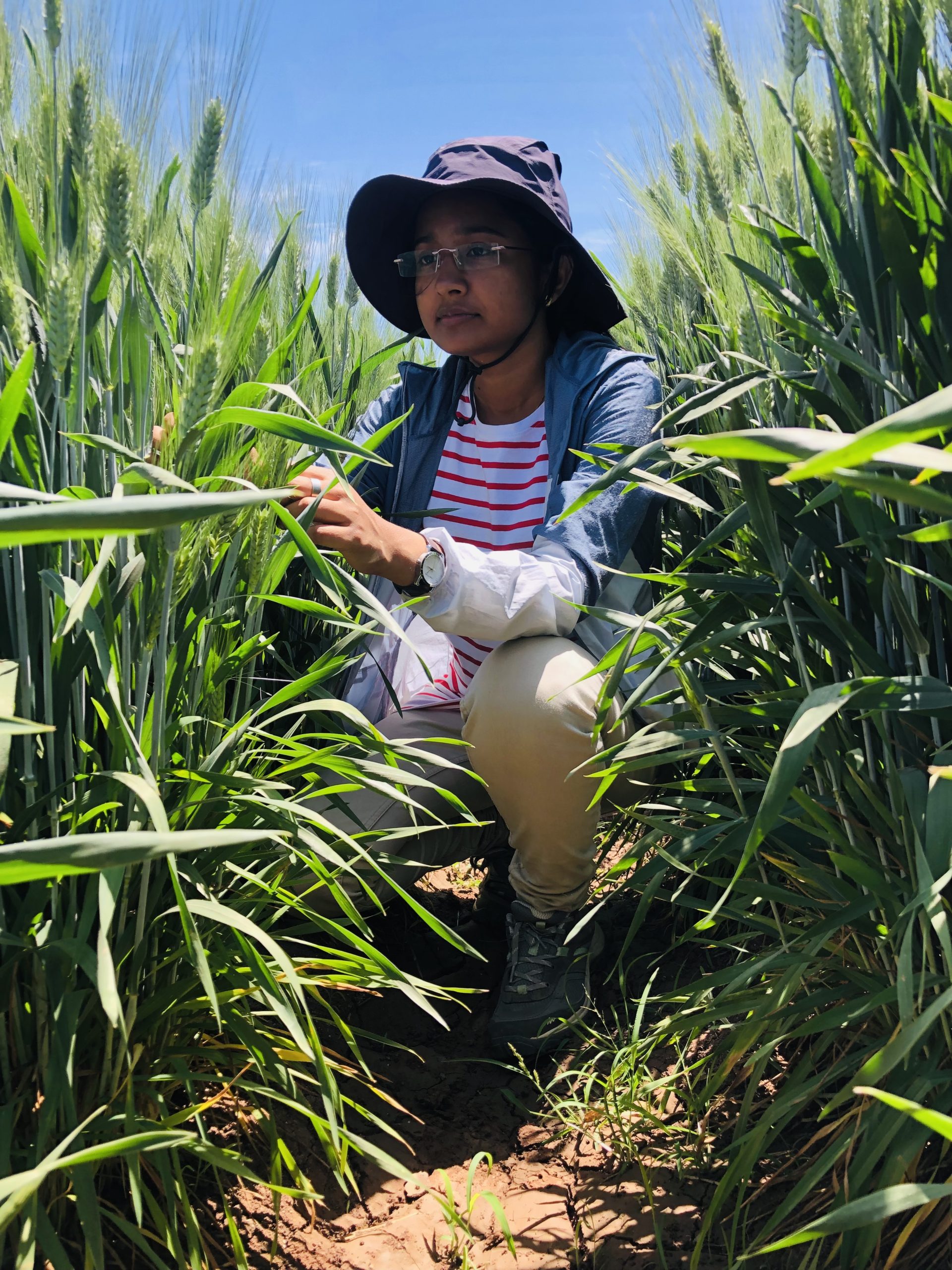
Deena Kaduppil Thankachan
Deena is a graduate student pursuing a Masters in Agricultural Sciences in the Tropics and Subtropics at the University of Hohenheim, under the supervision of Prof. Dr. Folkard Asch. Her research project, titled “Genotype x Environment interaction on leaf properties and pigment composition in tropical bread wheat,” aims to identify the effects of genotype x environment interaction on wheat leaf properties and their links with pigment composition of specific genotypes, as well as their tolerance to water deficit and heat stress.
Deena’s project research partners include CIMMYT, where she is advised by Francisco Pinto. Her work is funded by ATSAF.
Deena is passionate about understanding the physiological processes of plants and how they can be manipulated through breeding techniques to improve crop yields and quality for better productivity and sustainability in agriculture. In the future, she hopes to continue conducting research that can contribute to advancements in agricultural practices and help address global food security challenges.
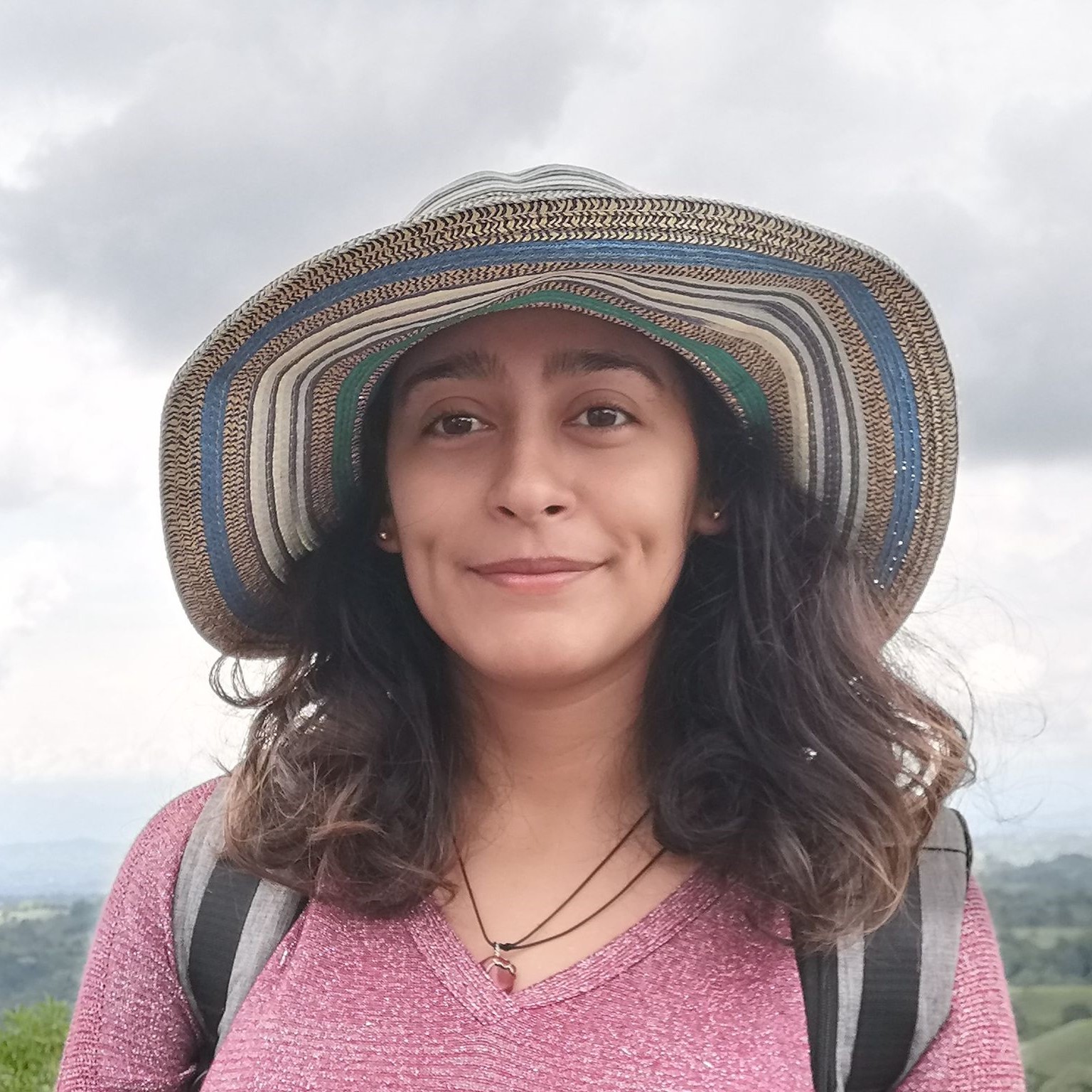
Ashly Lisset Arévalo-Rodríguez
Arévalo-Rodríguez is a biotechnology engineer with a Master in Agricultural Sciences. She has been working on soil microbiology to address the challenges of eco-efficient management of natural resources. In her project she will analyze the composition and functional potential of the microbiome (bacteria and fungi considering specifically arbuscular mycorrhizal fungi (AMF)) of contrasting wheat genotype lines in terms of resilience to heat and drought stresses employing the latest next-generation sequencing technologies. In addition, the root metabolome will be characterized to perform comparative analysis among genotypes and identify potential root metabolites responsible for microbiome modulation. This research will be at the University of Hohenheim and CIMMYT’s experimental research and breeding station in the Sonora desert of Mexico under the supervision of Prof. Frank Rasche of University of Hohenheim and HeDWIC collaborator with Dr. Hannes Karwat with funding from the ATSAF Academy.
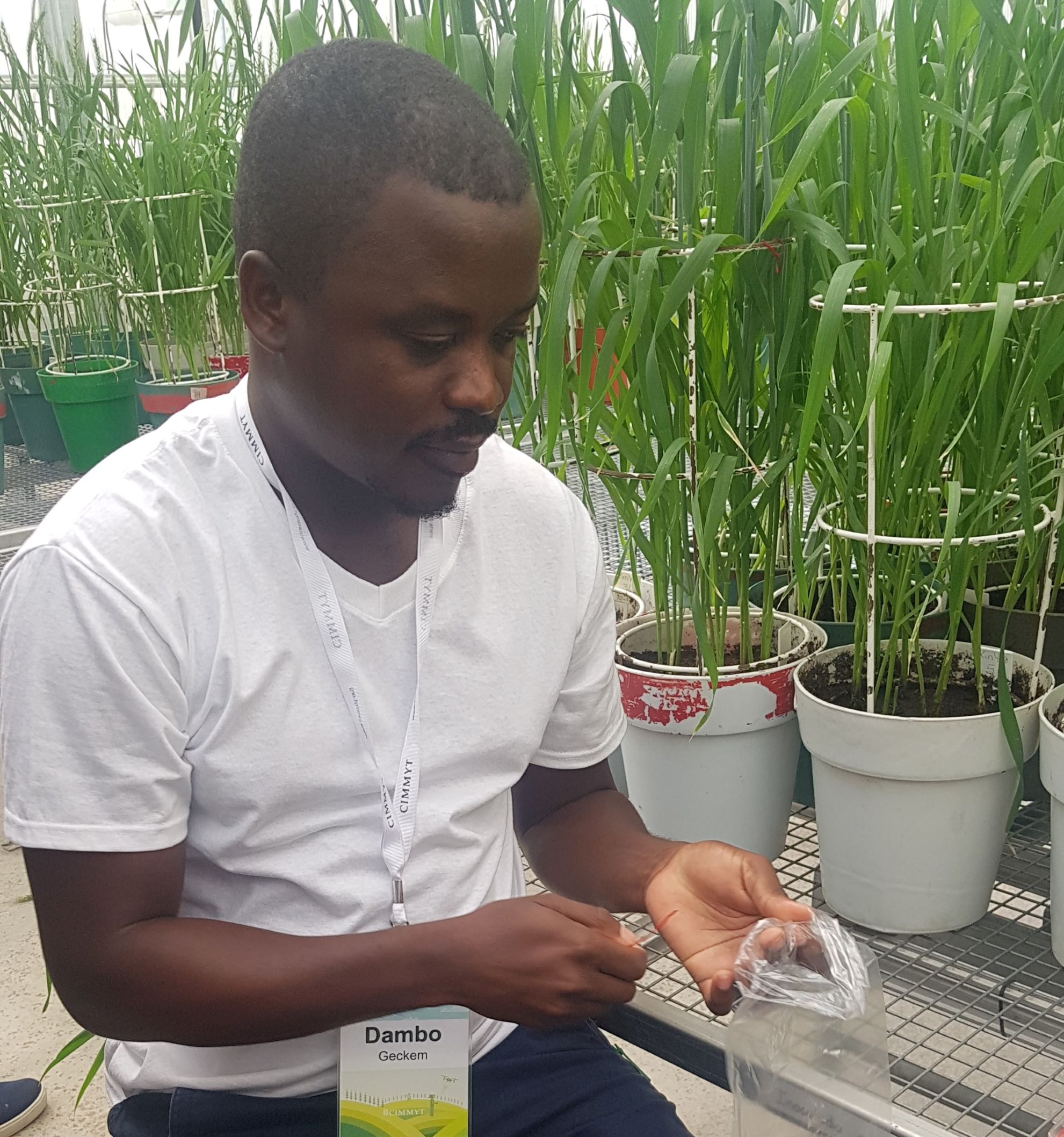
Geckem Dambo
Dambo’s research project — “Remotely sensed spectral indices as indicators of climate resilience in a wheat breeding context” — will focus on the identification and validation of spectral reflectance indices for the assessment of photoprotection and hydration status in wheat as adaptation mechanisms in heat and drought environments.
His research will be carried out as part of a collaboration between CIMMYT and the University of Hohenheim under the joint supervision of Matthew Reynolds and Folkard Asch, with funding from the ATSAF Academy, whose aim is to involve PhD students from German universities in CGIAR research projects to strengthen the links between universities and international, development-oriented agricultural research.
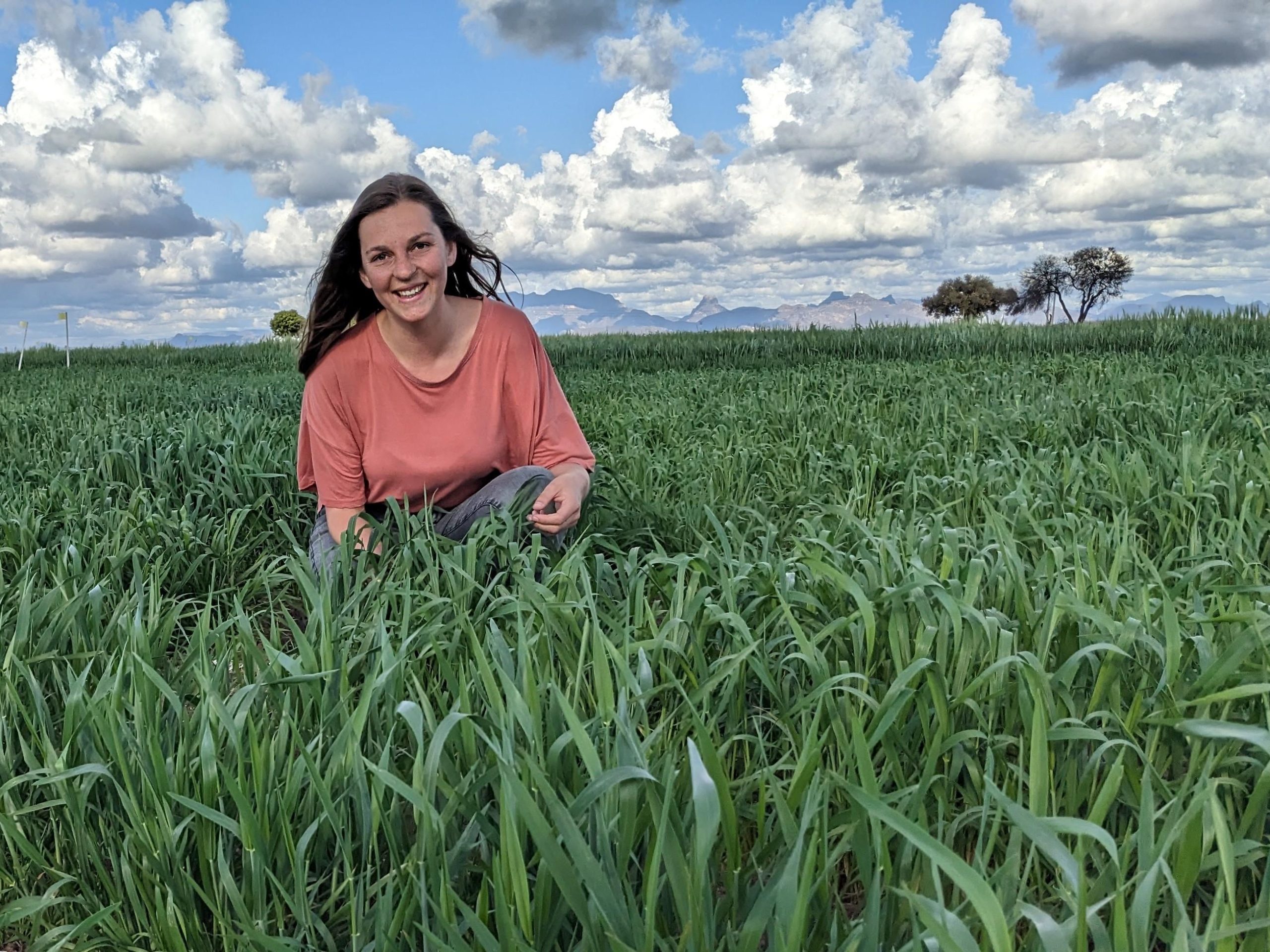
Katharina Jung
Through her University of Zurich PhD research project titled “Wheat responses to drought stress studied by Asian varieties as under-explored genetic and genomic resources,” Jung aims to understand the genetic bases of different drought-stress responses in under-explored Asian germplasm. The project uses a Nested Association Mapping population, with origins in Asian landraces and varieties, created by Dr. Shuhei Nasuda at Kyoto University. The germplasm is screened at CIMMYT for physiological traits under drought-stressed and optimum conditions and for yellow rust resistance. The project is funded by the European Unions Horizon 2020 Research and Innovation Programme under the Marie Sklodowska-Curie grant agreement and supported by the GRC Travel Glant and the Claraz Donation from the University of Zurich. Jung’s Ph.D. is being conducted under the advisement of Prof. Kentaro Shimizu, University of Zurich, with collaborators at CIMMYT and Kyoto University. Into the future, Jung hopes her work can contribute towards achieving a sustainable food supply under future climates.
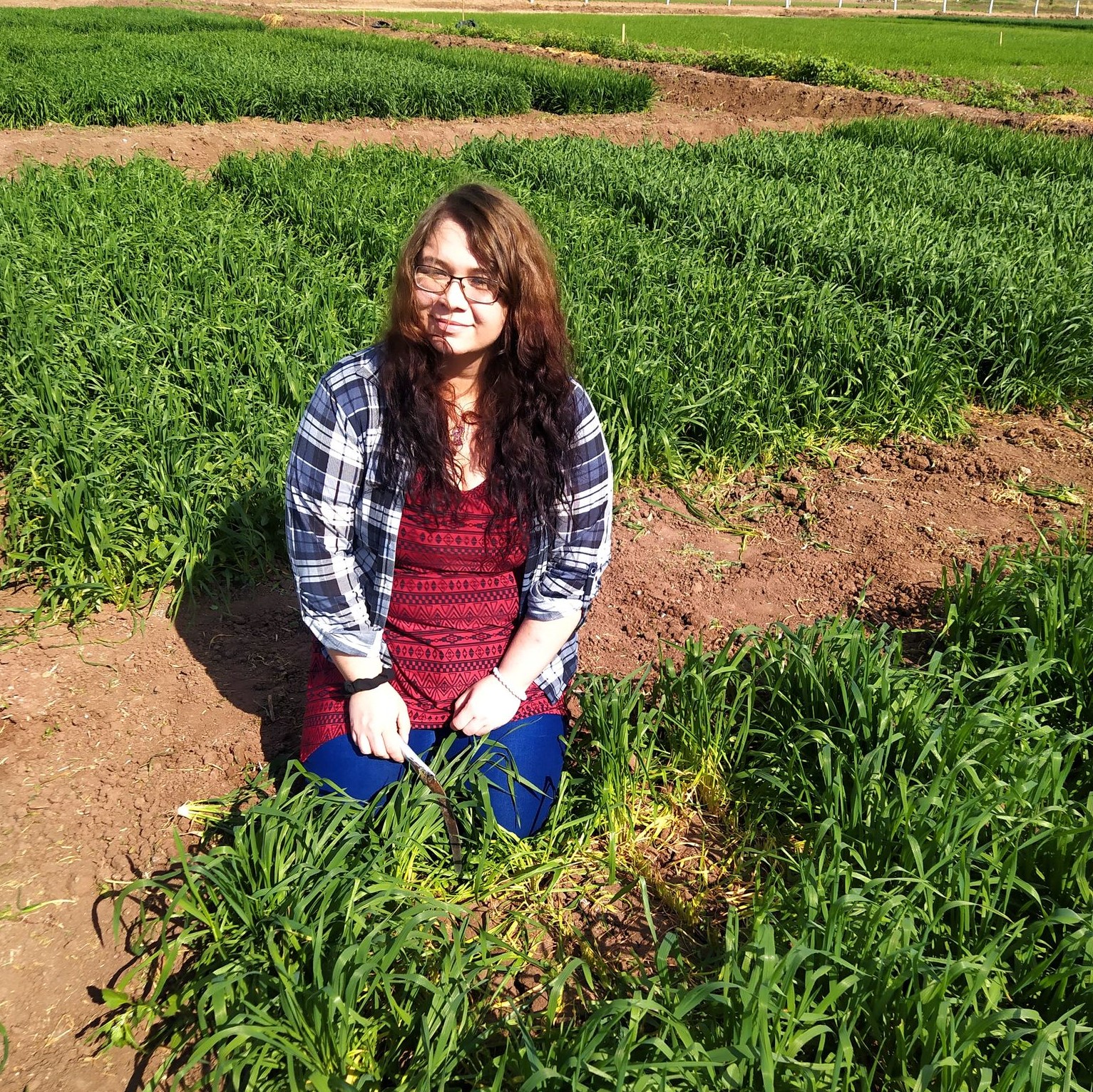
Lucia Nevescanin Moreno
Moreno’s research will be on “Characterization of physiological and anatomical basis of wheat root function under abiotic stress using high-throughput phenotyping.” The aim is to measure root structure-function traits of contrasting genotypes using the state of the art precision tomography in controlled conditions in the School of Biosciences at the University of Nottingham and field-based phenotyping at Yaqui Valley in Mexico to determine what root characteristics are underlying plant performance under a range of environments including warmer and water deficit conditions. Moreno’s research is being conducted under the supervision of Dr. Malcom Bennett, HeDWIC collaborator and University of Nottingham professor of Plant Sciences. This opportunity is funded by the CONACYT-Government of Mexico, SADER’s Trigo para Mexico and the University of Nottingham.
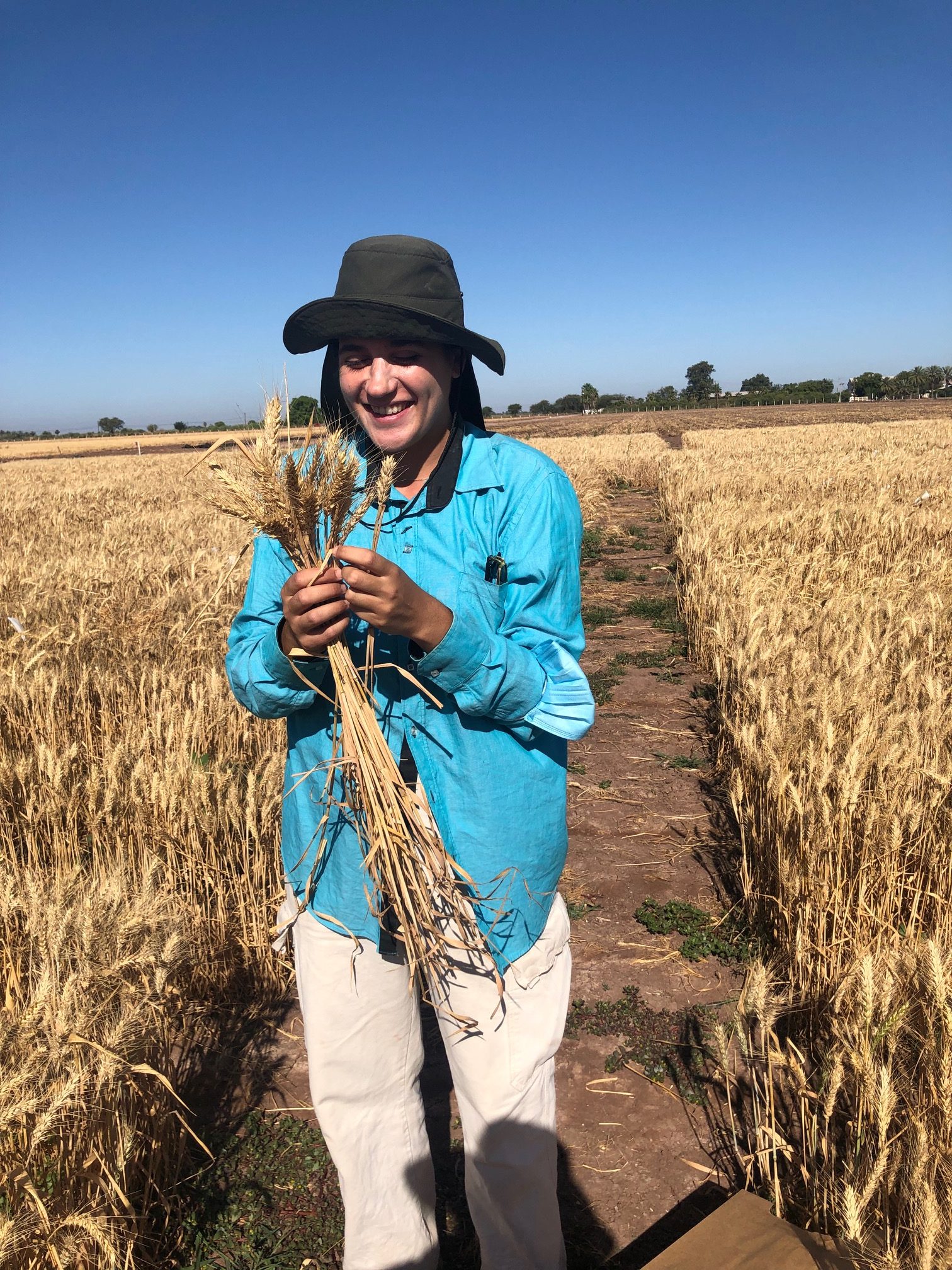
Ilaria Parente
Parente’s MSc research project, “Genotype x Environment effects on leaf properties and pigment composition in tropical bread wheat,” is supported by the Junior Scientist Program of the ATSAF Academy and is conducted under the advisement of Prof. Dr. Folkard Asch at the University of Hohenheim in collaboration with CIMMYT. The project objective is to determine Genotype x Environment x Leaf interactions in water deficit and heat stress conditions by looking at the photoprotective traits of contrasting genotypes. The work is based on remote sensing methods at different canopy levels and results will be corroborated with laboratory analysis on pigment compositions. Through this work, Parente hopes to contribute to defining resilient genotypes of wheat and address issues with food security. Into the future, she aims to empower marginal communities through agricultural practices that are environmentally and socially resilient.
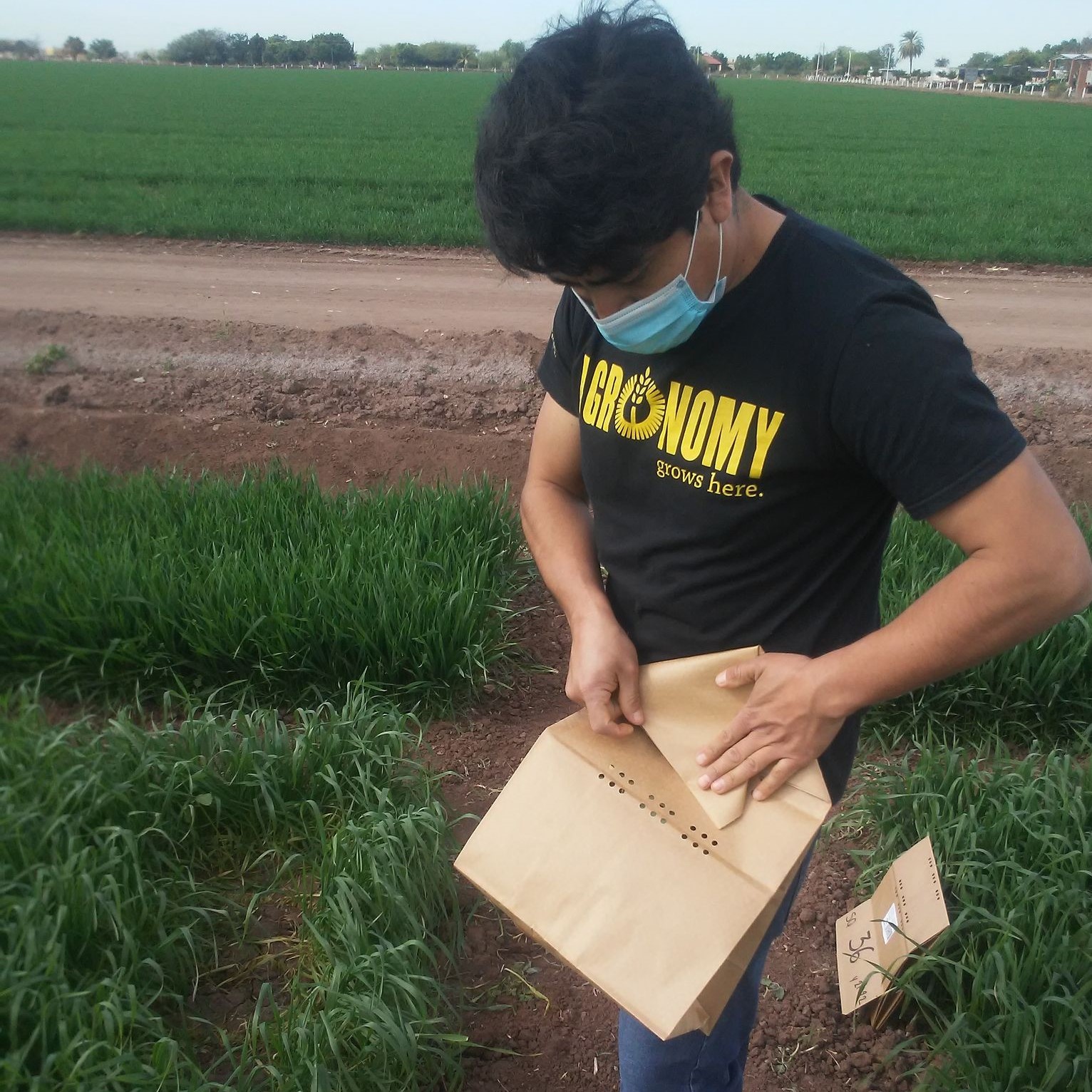
Luis Vargas Rojas
Vargas is completing a PhD as part of a collaboration between CONACYT-Mexico and Purdue University on testing remote sensed proxies in crop simulation models. His research will be on “Developing new data flows for remote-sensing to help boost scale-out of process-based crop models” and is being conducted under the supervision of Diane Wang at Purdue University and Matthew Reynolds at CIMMYT. The aim is to fill knowledge gaps to improve remote sensing (RS) techniques for Crop Simulation Models (CSMs) towards improving scale-out of models for application across larger populations. The research project objectives are to determine the minimum dataset of vegetation indices required for accurate simulations, to improve crop model formalisms for water transport and energy balance, and to apply RS on larger breeding populations to scale-out model parameterization and testing. This proposed data workflow will reduce the time spent preparing data manually or doing it with programs based on the graphic interface where task automatization is not possible.